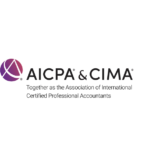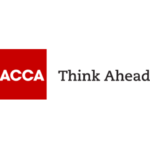
The video recordings of the symposia are available here.
All symposia will be held at Le Diplomate, InterContinental, Ground floor.
SYMPOSIUM 1
Wednesday, 15th May, 15:30–17:00
EAA FRSC: ESG information in IFRS financial statements
Chair
Thorsten Sellhorn, Ludwig-Maximilians-Universitat Munchen
Panel members
Ann Tarca, International Accounting Standards Board (IASB)
Jan Taylor, AICPA & CIMA
Christian Leuz, University of Chicago
Jeremy Stuber, Senior Global Equity Analyst, Chair of CRUF (UK)
Abstract
Firms’ financial risks and opportunities related to environmental, social, and governance (ESG) matters such as climate change are increasingly recognized as drivers of firm value. Whereas firms increasingly discuss these exposures (e.g., in ESG reports), investors and policymakers worry that the financial statements, the bedrock of corporate reporting, largely ignore them. For example, ESMA has made climate change one of its top enforcement priorities for financial reporting, and the IASB is pursuing a new project to explore targeted improvements in IFRS Accounting Standards related to “Climate-related and Other Uncertainties in the Financial Statements”. This symposium brings together diverse views from a balanced panel of accounting constituents, with the aim of understanding and overcoming the challenges related to fairly reflecting ESG matters in IFRS financial statements.
Sponsor:

SYMPOSIUM 2
Wednesday, 15th May, 17:30–19:00
EAA SRC: The challenges of the sustainability reporting and assurance: education for practice
Chair
Gunnar Rimmel, Aalborg Unversity Business School
Panel members
Massimo Bettanin, EY Sustainability
Iulian Harpa, HiM Public Affairs
Kerstin Lopatta, EFRAG SRB
Andreia Stanciu, ACCA Southern Europe
Abstract
The aim of the symposium is to engage with practitioners who already use sustainability reporting standards to prepare sustainability reports and with those that provide sustainability reporting assurance. The conversations will provide an opportunity for us – educators of current and future generations – to learn how we can help them face the related challenges. Through dialogue with some of the main actors, (namely practitioners, assurance providers, and standard-setters), we seek to understand better their immediate needs, as well as develop the capacity necessary to equip accounting students with the knowledge, skills, and competencies to work in the sustainability field.
Sponsor:

SYMPOSIUM 3
Thursday, 16th May, 9:00–10:30
Editor’s panel: Demonstrating reliability and ethics in the publication process
Chair
Martine Cools, KU Leuven
Panel members
Andrei Filip, Accounting in Europe
Aziza Laguecir, Accounting Forum
Matias Laine, European Accounting Review
Christian Leuz, Journal of Accounting Research
Wim Van der Stede, Management Accounting Research
David Veenman, The Accounting Review
Abstract
High quality research and ethics go hand in hand. While ethical considerations have always been crucial during the different phases of the research process, journals today seem to take on a more formal role. So what are the do’s and don’ts for submitting authors in terms of ethics? Is it always needed and possible to provide an official approval of the study by a university ethics board? And what is the role of the editor, the reviewers and the authors in this respect? Is it ethical/appropriate that authors propose and name particular reviewers they would (not) like to be involved in the review process? And what does this mean for the principle of the double blind review?
SYMPOSIUM 4
Thursday, 16th May, 11:00–12:30
EAR: Generative AI in accounting research and education
Chair
Amir Amel-Zadeh, University of Oxford
Panel members
Hussein Issa, Rutgers Business School
Othmar Lehner, Hanken School of Economics
Mikko Ranta, University of Vaasa
Abstract
The advent of Large Language Models (LLMs) and Generative AI has the potential to revolutionize various fields, including accounting research and teaching. This symposium aims to explore how accounting research and education can harness the potential of Gen AI and LLMs in the accounting domain. The discussion will focus on their impact on research methodologies, data analysis, and educational tools as well as some of the ethical implications surrounding their use. The symposium will serve as a platform for exploring the transformative potential of Gen AI in advancing accounting research methodologies, enriching educational experiences, and shaping the future of the accounting profession.
SYMPOSIUM 5
Thursday, 16th May, 14:00–15:30
AinE: Tax policy
Chair
Saskia Kohlhase, Rotterdam School of Management
Panel members
Christof Beuselinck, IESEG School of Management
Nathan Goldman, NC State University
Ramona Jurubita, KPMG Romania
Caren Sureth-Sloane, Universitat Paderborn
Abstract
Taxes affect many decisions ranging from investing to financing, from profit distribution to organizational form choices, from work-leisure to consumption decisions. Due to the multitude of affected areas, governments must design their tax policy such that it generates the revenues to provide public goods while safeguarding equity across taxpayers, keeping the costs of collecting taxes low, and steering behavior where appropriate. In addition, international corporate taxation changes dramatically, and environmental taxes increase in relevance. Consequently, tax systems are often complex and create compliance and enforcement problems for individuals, companies, and tax administrations. In this symposium, panelists will discuss tax policy questions regarding rules, complexity, and enforcement of direct, indirect, and environmental taxes.
SYMPOSIUM 6
Thursday, 16th May, 16:00–17:30
LOC: Accounting research in non-Western contexts
Chair
Nadia Albu, Bucharest University of Economic Studies
Panel members
Ajay Adhikari, American University
Andrea Mennicken, London School of Economics and Political Science
Shahzad Uddin, University of Essex
Aljosa Valentincic, University of Ljubljana
Abstract
Non-Western (outside North America and Western Europe) countries have diverse local contexts – comprising institutions, culture, ideologies – which significantly influence accounting practices. Research incorporating local specificities has the potential to contribute to a wider understanding of accounting practice globally, and to theoretical developments outside the West. In this context, the aim of the symposium is to discuss how to engage with the rich non-Western context, and the potential of this engagement for developing new concepts and theories. This should provide the required understanding of the appropriate techniques, theories and practices of accounting and accountability in countries located outside the traditional West.
SYMPOSIUM 7
Friday, 17th May, 9:00–10:30
EAA DEIC: Inaugural Symposium of the EAA Diversity, Equity and Inclusion Committee
Chair
Ekaete Efretuei, EAA Diversity, Equity and Inclusion Committee Chairperson
Panel members
Mark Clatworthy, European Accounting Association President
Yvonne Hinson, American Accounting Association CEO and Diversity, Equity and Inclusion Committee member
Nick McGuigan, Chair British Accounting and Finance Association, Diversity SIG
Charles H. Cho, EAA Diversity, Equity and Inclusion Committee Member
Angie Abdel Zaher, EAA African Board Elected Representative
Abstract
What does it mean to have a Diversity, Equity, and Inclusion (DEI) Committee in the EAA? How can EAA members get involved to create an equitable, diverse, and inclusive EAA community? What are the issues not identified and what are the practical feedback mechanisms for members? This interactive Symposium aims to provide space for diverse voices in the EAA and reflect together on how we foster and promote DEI within the Association and its activities. Achieving this requires intentional and systemic action. This means enhancing existing DEI interventions to address barriers and promote full and equitable participation in teaching, research, and outreach. We are excited to hear from diverse voices, experts on DEI, the EAA leadership and all attendees.
SYMPOSIUM 8
Friday, 17th May, 11:00–12:30
EFRAG: IAS 7—Statement of cash flows is old. Is it still fit?
Chair
Mark Clatworthy, Chair EAA, University of Bristol
Panel members
Tina Aggerholm, Danish Industry
Martijn Bos, EFRAG User Panel member, Eumedion
Sebastien Harushimana, EFRAG FR TEG Chair
Malgorzata Matusewicz, EFRAG FR TEG member, EY Poland
Saskia Slomp, EFRAG CEO
Rasmus Sommer, EFRAG Technical Staff
Ann Tarca, IASB member
Abstract
The IASB expects to start a project on the statement of cash flows in the near future. As part of the initial work, the IASB will consider whether IAS 7 Statement of Cash Flows needs a comprehensive review. At the symposium, it will be discussed whether the statement of cash flows is (still) a relevant primary financial statement, how it is used and what the issues are with the statement that need to be fixed. For example: Is the statement useful/used for predicting future cash flows and assessing solvency/liquidity? Is it clear what is cash and cash equivalents? Should non-cash transactions be reflected in the statement (e.g., leases)? Is the information presented currently comparable between entities? Would it be possible to fix IAS 7 by targeted improvements or is a comprehensive review necessary?
Sponsor:

SYMPOSIUM 9
Friday, 17th May, 14:00–15:30
EAA EC: The Digital Future for Accounting Graduates
Chair
David Derichs, Aalto University
Panel members
Utz Schaeffer, WHU – Otto Beisheim School of Management
Mike Schulze, CBS International Business School
Meredith Tharapos, RMIT University
Bruce Vivian, IFAC
Abstract
Technological changes such as intelligent automation, blockchain and cloud-based software have significantly impacted the accounting profession worldwide; creating gaps between the general skills of new graduates and the needs of the accounting profession, and making skills in technology as some of the most highly valued in accounting. The 2024 Education Committee Symposium will involve a discussion around how different stakeholders (universities, employing organizations and professional associations) and especially accounting educators need to play a leading role in preparing the next generation of accounting professionals for the impact of emerging technologies, and in developing associated technology-related skills in accounting graduates.
Sponsor:
